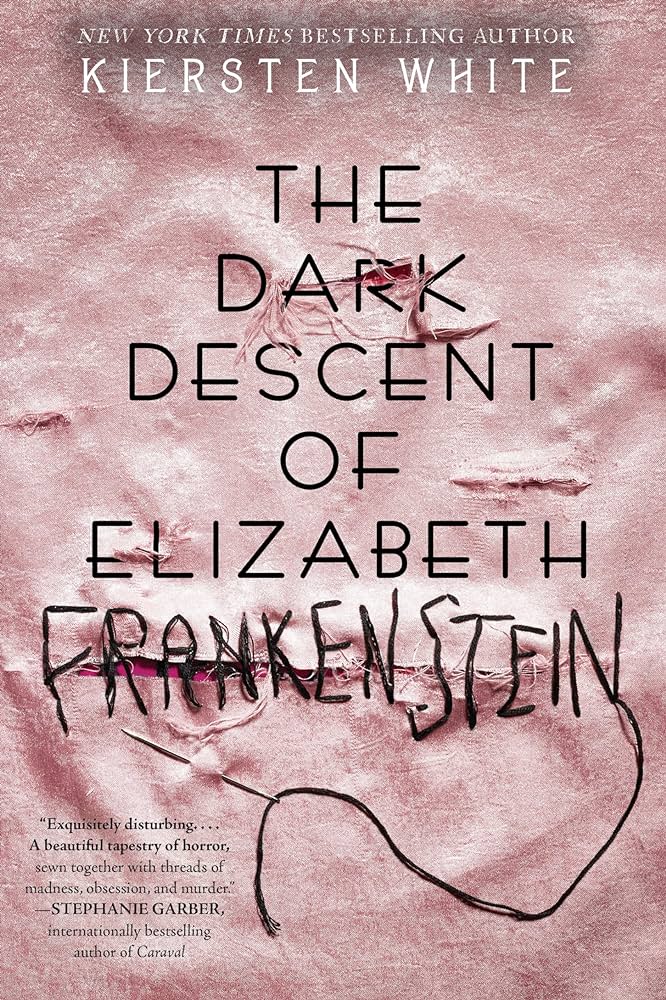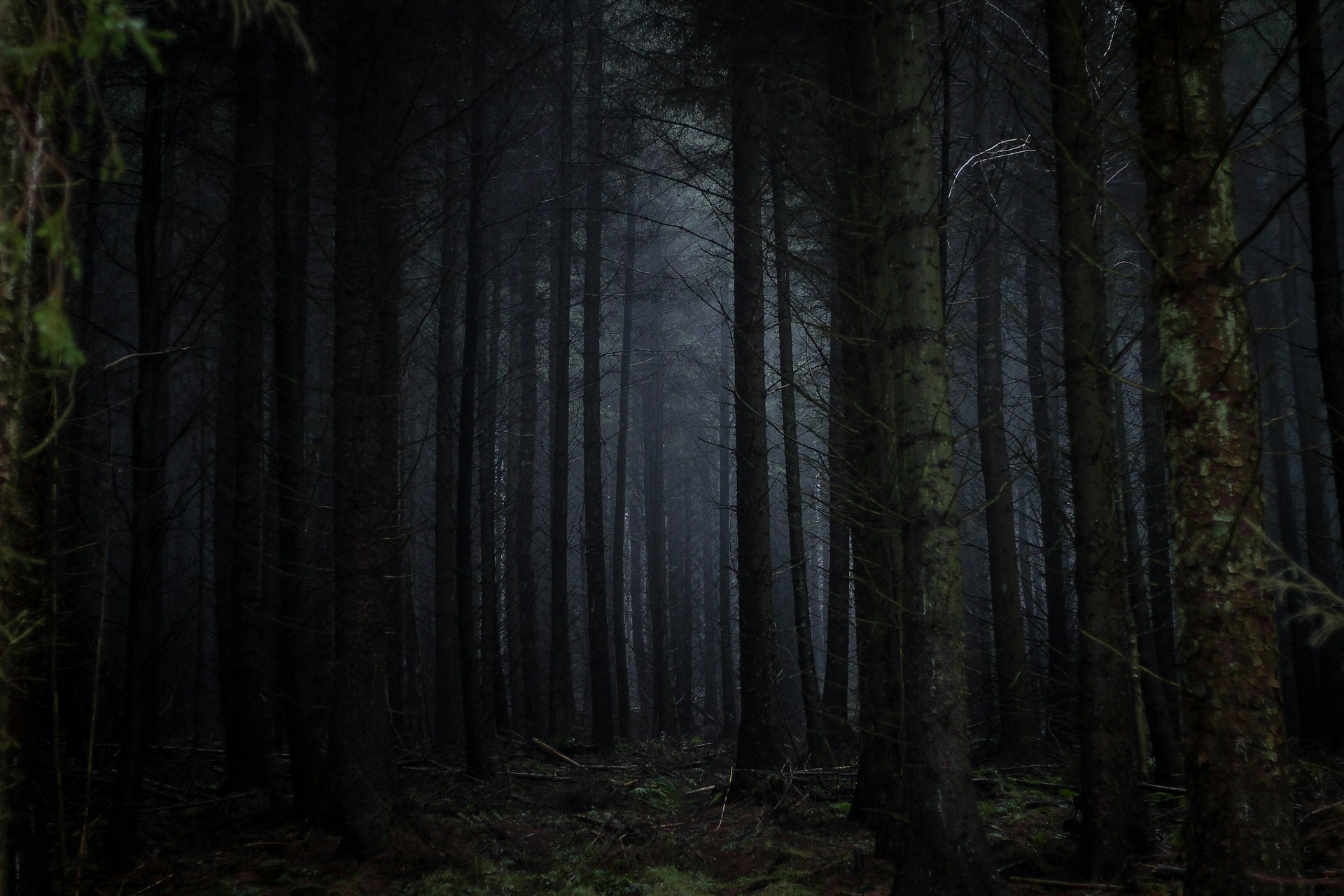by Molly McGill

Mary Shelley’s Frankenstein is often credited with the creation of the science fiction genre, so how does this modern retelling measure up to such a classic? In short, it doesn’t, but only because it doesn’t try to.
For those who do not know, Mary Shelley wrote Frankenstein as part of a writing competition between herself, her husband, and Lord Byron. Kiersten White, in the author’s note, talks about how Mary Shelley’s husband, Percy, wrote in the preface of Frankenstein that if Lord Byron published the story that he wrote at the same time Frankenstein was drafted, the reader would prefer Byron’s work. White wrote, “That passage made me want to break something.” And The Dark Descent of Elizabeth Frankenstein was born.
The Dark Descent of Elizabeth Frankenstein is a homage to the original, a love letter to women, and stands alone as a work of fiction. The true strength of the book is in the intricacy of the characters in particular our protagonist, Elizabeth Frankenstein (nee Lavenza) and this is the reason that it has wormed its way into my favourite adaptations.
Elizabeth in Frankenstein is used by Shelley to represent Victor Frankenstein’s tenuous tether to humanity and not much else, presumably because the tale is told from Victor’s perspective, and he cares little for anything other than his experiments.
White does not drift too far from the origins of Elizabeth’s life as detailed in the original Frankenstein. Madame Frankenstein, Victor’s mother, adopted Elizabeth from poverty as a companion for her antisocial son, and if she fails to fulfil that role… they have no use for her. Elizabeth therefore has no choice but to allow herself to be moulded into Victor’s perfect companion. She wears white because Victor likes her in white, she protects him when he hurts other children and, at various junctures, takes the role of his parent, his doll, his slave and eventually his wife.
“Could you do that Elizabeth? Could you be Victor’s special friend?”
“The Dark Descent of Elizabeth Frankenstein,” page 7
The retold Elizabeth Lavenza is a different character entirely. She is an intelligent, morbid, and manipulative creature hiding behind white gloves and a practiced smile and this makes for a fascinating read. Elizabeth’s life and her well-being are in the grasp of Victor’s unloving hands, and she is very aware of it.
“Maybe I can climb this one, and it will be the last tree I can climb? For you?”
“The Dark Descent of Elizabeth Frankenstein,” page 9
I thought this was a fascinating and logical direction to take the character, deviating from the original characterisation and I was excited to find out how her vulnerability to Victor’s whims affected Elizabeth throughout the story. I was not disappointed.
“Words and stories are tools to elicit the desired reactions in others, and I was an expert craftswoman”
“The Dark Descent of Elizabeth Frankenstein,” page 11
“I used smiles like currency. They were the only currency I ever had.”
“The Dark Descent of Elizabeth Frankenstein,” page 6
The result is the creation of a manipulative and morally grey narrator. Elizabeth uses her looks and sweet demeanor to her advantage, particularly with men and, because of this, the only real bond we see her form in the book is with other women. She is no different than any other woman of the time, doing what she must to survive in a world that has little care for what happens to her.
“Realising I was playing this wrong, I shifted my face. Let my eyelids hang just a bit heavier, tilted my chin, smiled as if I had never had a secret.”
“The Dark Descent of Elizabeth Frankenstein,” page 26
“Oh, I like you, Elizabeth Lavenza. I like you very much. I am a little afraid of you, but I think that makes me like you more.”
“The Dark Descent of Elizabeth Frankenstein,” page 98
The opening page finds us with Elizabeth and her friend Justine in a carriage, traveling to visit Victor at his university. He has not been answering Elizabeth’s letters and she feels her place in the Frankenstein family start to dwindle without Victor at home to need her.
All the while, a tremendous storm rages outside. While Justine cowers from the power of nature, Elizabeth is thrilled by the lightning illuminating their carriage. She recounts a memory to Justine of her childhood when she and Victor witnessed a lightning bolt hit a tree and destroy it. In Frankenstein, we see the same memory through the eyes of Victor, who is terrified by the brutality of nature and his inability to control the fate of the tree. In contrast, our protagonist is used to the lack of control and finds beauty in the violence. This establishes the new perspective we see this classic told in.
“To me, it was the great and terrible power of nature. It was like seeing God.”
“The Dark Descent of Elizabeth Frankenstein,” page 4
As for Victor himself, White gives his personality a darker twist. The controlling and neurotic elements of his nature are emphasised to an extreme effect and through Elizabeth’s childhood memories the reader gets an insight into the horrible and abusive behaviour that she was subjected to from Victor throughout her life.
“His chest heaved, his narrow shoulders shuddering as he screamed with a sound more animal than human. In his hand, he clutched a letter opener.”
“The Dark Descent of Elizabeth Frankenstein,” page 45
“You are mine, Elizabeth Lavensa, and nothing will take you from me. not even death”
“The Dark Descent of Elizabeth Frankenstein,” page 92
White builds suspense through the slow unfolding of Elizabeth’s memories until the true monster of the story is revealed as Victor Frankenstein, not the creature he creates.
“I would never soothe him again”
“The Dark Descent of Elizabeth Frankenstein,” page 231
To avoid spoiling the book entirely, you will have to find out the rest yourself.
As a retelling, The Dark Descent of Elizabeth Frankenstein makes for a thoroughly entertaining read. The deviations from Shelley’s Frankenstein are certainly extensive by the end of the book. White also takes some creative liberties but concludes in a fun, self-indulgent (and queer-coded) way reminiscent of canon-divergent fanfiction. It is a true passion project of a Frankenstein and Mary Shelley lover.
If this sounds like something you want to read, I highly recommend The Dark Descent of Elizabeth Frankenstein for the feminist horror fan.
Molly McGill is an associate editor of Sage Cigarettes Magazine and a writer from Derry, Ireland. She specialises in horror flash fiction and short stories exploring the unusual and disturbing and more of her work can be found published on the Sage Cigarettes Magazine Website.
Twitter- @NightTime_Tea



Add your first comment to this post